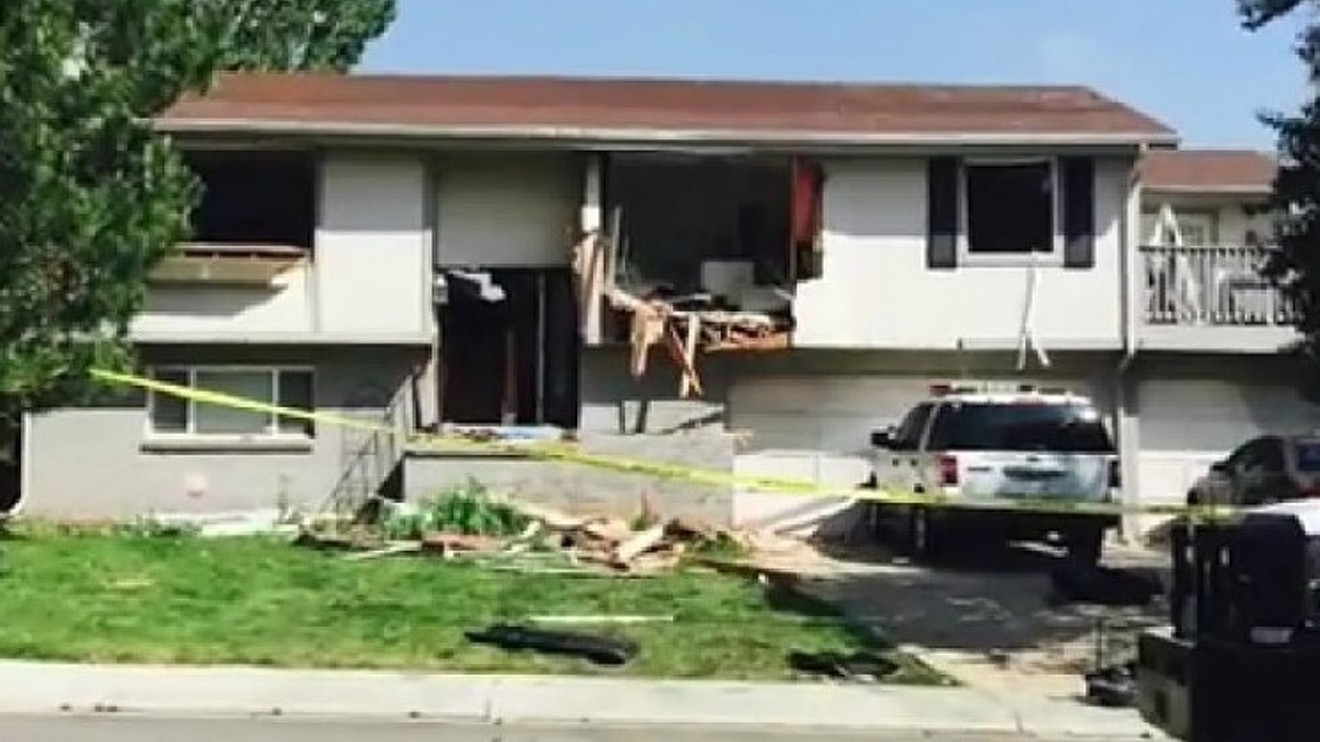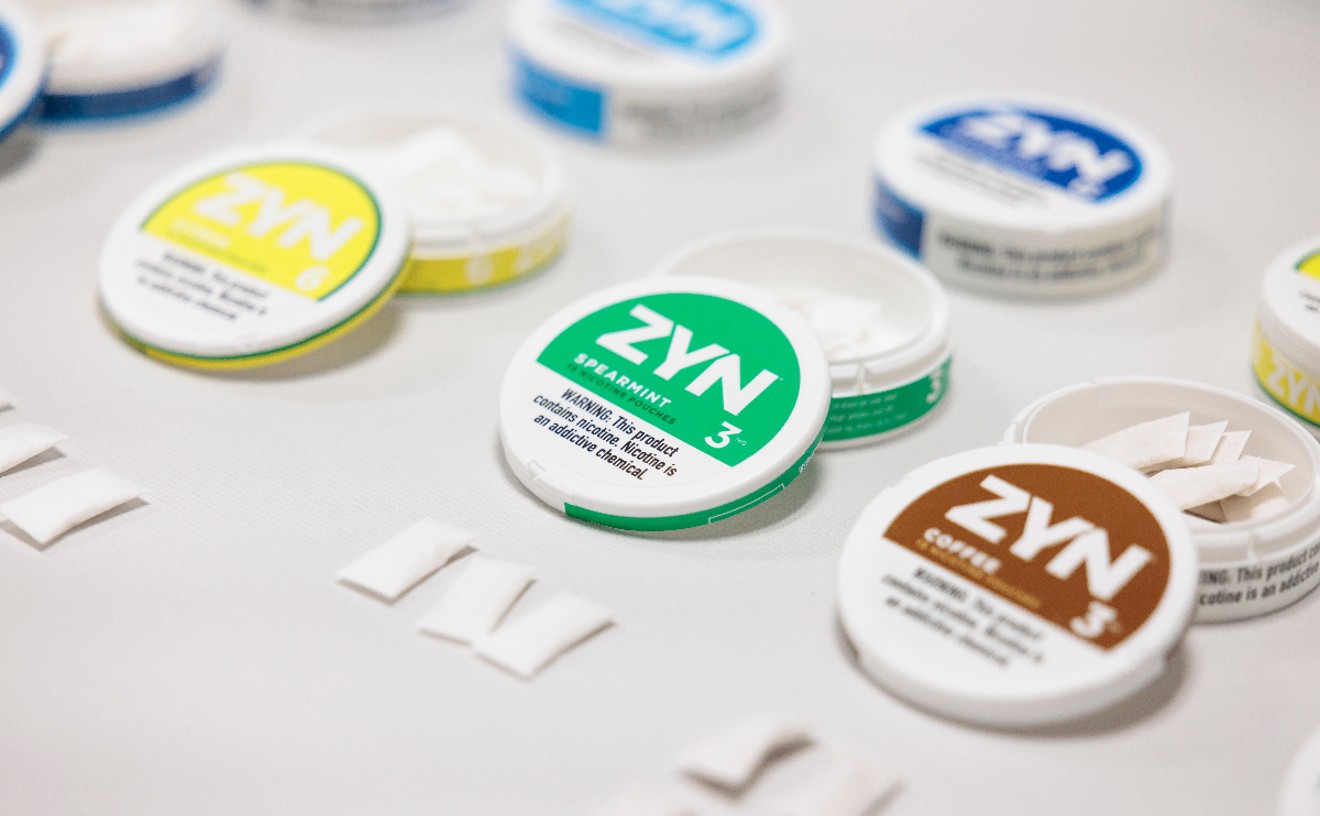Today, November 27, the Institute for Justice, which describes itself as "the national law firm for liberty," plans to file a petition for a rehearing to the full Tenth Circuit in conjunction with Denver-based attorney Rachel Maxam, who continues to represent Lech.
IJ attorney Jeff Redfern says his organization heard about the case "the way a lot of people did, when it was blowing up in the media a few weeks ago." He adds, "The facts are obviously outrageous. But when we read the opinion, it was also clear there were some very serious legal errors. It seemed to be really ripe for review because of some of the mistakes the court made."
According to the original complaint, the incident began on June 3, 2015, when Seacat fled the Greenwood Village Walmart pursued by police. He subsequently holed up at the Lech house, a location apparently chosen at random.
The dwelling's residents were Leo's son, John Lech; Anna Mumzhiyan, John's then-significant other; and her nine-year-old, D.Z., the only person at the home when Seacat entered. The boy managed to get away within minutes — and lucky thing, since all hell broke loose shortly thereafter. The tools used to dislodge Seacat, who was armed and reportedly fired at officers, included 40mm rounds, explosives, tear gas and flash-bang grenades, one of which was so badly thrown that it bounced back toward assorted cops, "forcing them to scatter," the suit notes.
In the end, a total of "68 cold chemical munitions and four hot gas munitions" were launched into the Lech home, by the lawsuit's count, with some of them getting stuck in the walls. Holes were also blasted through the windows and doors even before the deployment of a battering ram.
After Seacat was taken into custody, the complaint maintains, John, Anna and D.Z. were told the home had sustained "some damage." That turned out to be a mammoth understatement. The residence wound up being condemned, and the three lost "all but a few of their personal belongings, including clothing, toys, basic household items, furniture, appliances and other personal effects" such as a treasured ring and a family heirloom that survived World War II in Italy...but not the Greenwood Village SWAT team.
The suit also says the city failed to clear the scene of "projectiles and other hazards," including a "hypodermic needle containing an unknown dark substance" that nearly jabbed Leo Lech. (Another hypo was found later amid "a pile of debris.") The lingering chemicals caused nausea and sinus congestion for Lech and company — property inspectors wore hazmat suits when they looked around — and the "two highly trained hunting dogs" kept on the property were so shell-shocked that it's doubtful they'll react to gunfire without freaking out ever again, the plaintiff claims.

Two booking photos of Robert Seacat.
Greenwood Village Police Department/Colorado Department of Corrections
Amid public sympathy for the home's residents, Greenwood Village eventually offered $5,000 to cover Leo's home-insurance deductible fee — an incredibly inadequate sum, the suit contends. But from the beginning, attorney Maxam knew that increasing the figure would be difficult. After all, the Colorado Governmental Immunity Act restricts suits against municipalities such as Greenwood Village, and complaints against individuals can only succeed if they're found to have acted willfully and wantonly — which is why she refiled the suit in U.S. District Court after an initial filing in Arapahoe County Court.
"Our argument is that what happened was a takings under the Fifth Amendment," Maxam told Westword last year. "Both the Colorado Constitution and the U.S. Constitution say the government can't take private property for public use without just compensation."
The Tenth Circuit panel saw things differently. One section of the ruling, penned for the majority by Judge Nancy L. Mortiz, reads: "Contrary to the Lechs' position, at least three of our sibling circuits and the Court of Federal Claims have expressly relied upon the distinction between the state’s police power and the power of eminent domain in cases involving the government’s direct physical interference with private property." Another maintains: "Although the Supreme Court has never expressly invoked this distinction in a case alleging a physical taking, it has implicitly indicated the distinction applies in this context."
Referencing an 1887 U.S. Supreme Court case known as Mugler v. Kansas, Moritz writes: "We do not disagree that the defendants’ actions benefited the public... When the state acts to preserve the 'safety of the public,' the state 'is not, and, consistent with the existence and safety of organized society, cannot be, burdened with the condition that the state must compensate [affected property owners] for pecuniary losses they may sustain' in the process."
In Redfern's view, the biggest problem with the ruling is its sweeping nature. "Basically, it says the government only has to pay compensation when it takes your property via eminent domain and not for any reasons related to police power — and that's wrong. The Supreme Court has rejected it. But it's also a very dangerous notion, because it says there are really no limits to the type of damage that can be done."
A complicating factor in determining the intent of the Supreme Court pertains to the kinds of related controversies the body has considered in the past. "There are numerous cases referring to World War II and the Civil War, dealing with the destruction of property during wartime," Redfern points out. "But what's really important to keep in mind about these cases is that none of them adopted the sort of categorical rule the Tenth Circuit did here. Cases have gone both ways, depending on the facts. Lots of things can come into play. So we're not saying there's a simple, categorical rule that you can always get compensation when a government causes damage. We're saying there's absolutely not a categorical rule that you can't get compensation."
In its ruling, Redfern acknowledges, "the Tenth Circuit expressed concern that if the government has to pay, then law enforcement officers will be chilled in the exercise of their duties and be worried about causing too much damage. But I don't think that's a really serious concern for a number of reasons. If you're getting compensation under the Fifth Amendment, that's not personal liability. So the question is, who should pay for getting a dangerous fugitive off the street? Should it be the public at large, the taxpayers, because it's being done for reasons of public safety? Or should it be one unlucky home owner?"
The opinion in the Lech matter was technically unpublished, "which is something of a misnomer," Redfern concedes. "It's a term of art, because everything is published. But when something is classified as 'unpublished,' it's not technically a precedent of the court — and it's a little surprising to have such a long opinion about such a serious issue be designated as unpublished."
By applying for a rehearing, the Institute for Justice is hoping that the Tenth Circuit as a whole will acknowledge what he sees as incorrect assertions the first time around and publish the opinion. That way, Redfern says, "the next time the issue comes up in a federal circuit that hasn't squarely addressed the issue, the court can look at this decision, which hopefully will be better reasoned, and not follow bad decisions from other courts."
Redfern stresses that "this isn't about whether the police acted reasonably" in making a house uninhabitable to nab a runaway shoplifter, albeit one who had four pending drug-related warrants in his name. "A lot of the talk about this case has gotten into whether it was worth destroying a house to catch this guy, and that's not really the question we're asking. Maybe the police used excessive force, maybe they didn't. But the most important issue is that when they decide to destroy a house to catch a fugitive, we don't think it's something a random bystander should have to pay for."
Click to read the original Greenwood Village SWAT team lawsuit, as well as the Tenth Circuit Court of Appeals ruling.













